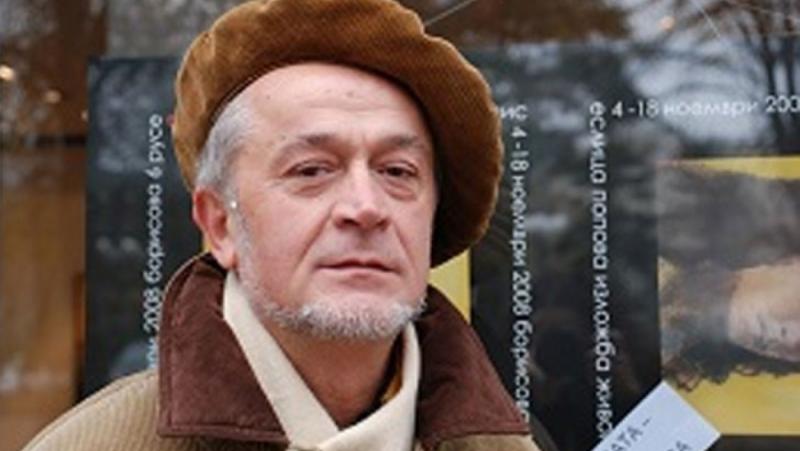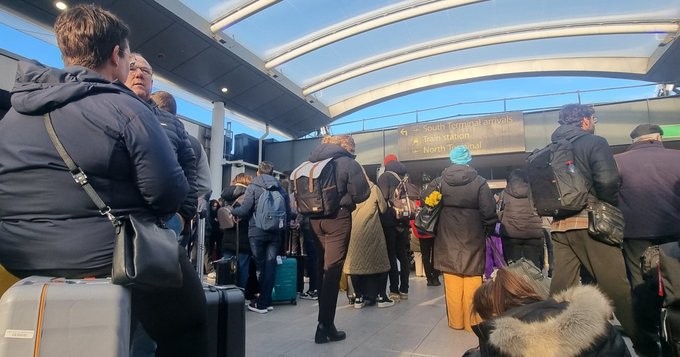/ world today news/ “Language sacred to our ancestors…”
Vazov
– Hello, neighbor! How is the hava? Do you like alush-verisha? Today, I will probably do the seft for you.
– It happens. I got up early and in the morning I raised the shutters of the shop…
– Ashkolsuun! Mashaala! You, Idas, must be studying for someone else, I know you have a book for teaching, and I know what trick the saleswoman turned!… Ashkolsun, Idas!
No, dear readers, this is not an excerpt from some folk tale of Lyuben Karavelov or Iliya Bluskov from Turkish times. This is the most ordinary conversation between two neighbors from a modern Bulgarian city, which has a university and even a world-class opera and music festival. A conversation from the 21st century, 138 years after the Liberation of Bulgaria from Turkish slavery. A conversation between two educated Bulgarians, inheritors of one of the most ancient cultures in Europe, which also gave writing and culture to part of humanity.
Yes, as we can see, the language of today’s Bulgarian has changed a lot, become dirty, simplified. On the one hand – the American influence with elementary American English from television, action and low-quality disco and rap screams, and on the other – which I am talking about now: Turkishization. Our beautiful, sonorous Slavic, European language, the one with which we serve ourselves every God’s day, has become too polluted by Turkishisms. And many beautiful Bulgarian words or words from the world language fund have already been replaced by their Turkish-Arabic synonyms. Why, for example, do we have to say: “adash”, “neighbor”, “babaluk”, “sert”, “alush-verish”, “kelepir”, “na kesterme”, “akran”, “jam”, “meze” , “akl”, “serbez”, “majtap”, “baya”, “teke”, “tapia”, “teskere”, “bash”, “asl”, “akran”, “askerluck”, etc., after for each of them has its own Bulgarian, cleaner, more sonorous and more beautiful. Translate any of them and you will see for yourself. These are words that simply stain our tongue. They are pulling us down, towards Asia, towards the Orient, but we are headed towards Europe, where we always belonged. They are returning us to the cruel and barbaric slavery that some bastards, bought by foreign foundations, now cynically call the “Ottoman presence”! Have we not lost so much in those dark five hundred years? Our wounds have not yet healed and are unlikely ever to close.
In our beautiful country, we still have wonderful places with… Turkish names! Why not rename / better late than never! /: Kardjali, Kailaka, Beklemeto, Ayazmoto, Hisarlaka, Bakadjika, Deliormana, Jumayata, Hain Boaz, Musala, Buzludzha and many others who only threaten them with their Asian sound? And why shouldn’t “Musala”, which means “Glory to Allah”, become “St. Ivan Rilski”, Vadov or “Levski”? Isn’t it ugly and shameful that our highest peak bears this shameful name? Moreover, these are names left over from slave times. It is a mistake that the state still tolerates them. This cannot happen anywhere else but here. Almost all peoples in old Europe were under someone’s slavery /of course, not under such a dark and impenetrable as the Turkish one!/. Most geographical names were changed by their enslavers, but were not preserved after their liberation. Neither Bratislava today is called Presburg, nor Sibiu – Hermannstadt, nor Wroclaw – Breslau, Ljubljana – Laibach or Karlovy Vary – Carlsbad… Yes, these names can and should be changed – be named with nice and sonorous Bulgarian names, right? are a primitive part of Bulgaria, and not from some former Turkish province, about which the neo-Otmanists Erdogan and Davutoglu in Ankara are still raving about?! They have already gone too far. Are there preserved Bulgarian toponyms/names of cities, villages, rivers, hills and localities in today’s Turkey or Greece? No! Even among the Bulgarians, who have been seized by our two southern neighbors to this day, you will not meet a single Bulgarian name. This was decided by law back in 1934. As well as Bulgarians. They are either simply brutally slaughtered/ like those 1500 000 innocent Armenian men, women and children, which our “people’s intruders”, sorry!, elected officials, had the audacity to deny! – for the shame of Bulgaria in front of the world!/ or they were simply driven out, robbed or killed like the Thracian Bulgarians, slaughtered like the inhabitants of Batak, Stara Zagora / 14,500!/ and dozens of Bulgarian villages and towns or else forcibly melted down. And our cowardly rulers do not want the Thracian Bulgarians to be compensated, even though the National Assembly decided this!
So: Turkish geographical names, five times a day the wail of the imams from the mosque in a number of Bulgarian cities / in recent years more than 100 new ones have been built !/, Turkish speech on the Bulgarian National Television, Turkish radios / now the DPS is demanding more! / and Turkish newspapers, a round-the-clock stream of chalga and kuchets on “Planeta” television and even on BTV, illegal Turkish “cultural” centers in Bulgarian folk community centers and turkish theaters for maaneta ikuchets, supported by our money, and turkish words polluting the bulgarian speech…
No, our way, as claimed by Dogan and Mestan, is not through the Bosphorus!
P.P.
1/ Turkey recently proposed to Romania a project to build a huge mosque in the center of Bucharest. The Romanian government said it could only be implemented if a Christian Orthodox church of the same size was built in Istanbul.
2/ On June 2 on Mount Vola, when asked who Botev had fought with, “the brain of GERB” Tsvetan Tsvetanov thought about it and after a pause uttered literally the following:
“Botev fought against…the Turkish representatives then in Bulgaria.”
#Lets #pollute #language #Turkishisms
**How does the concept of “linguistic purity” intersect with political ideologies and national identity formation in the Bulgarian context?**
## Reclaiming the Bulgarian Tongue: An Interview
This interview delves into the complex topic of language preservation and cultural identity, spurred by a recent article raising concerns about the pervasiveness of Turkish words and influences in modern Bulgarian. We are joined by two esteemed guests:
* **Dr. Elena Ivanova:** Linguistics Professor at Sofia University, specializing in historical and sociolinguistic analysis of Bulgarian.
* **Mr. Ivan Petrov:** Historian and author, focusing on the impact of Ottoman rule on Bulgarian culture and identity.
**Section 1: The Evolution of Language**
**Interviewer:** Dr. Ivanova, the article argues that modern Bulgarian is polluted by Turkishisms. Could you shed some light on the natural evolution of language and the interplay between languages in contact?
**Dr. Ivanova:** Certainly. Languages are living organisms, constantly evolving and absorbing influences from other languages through contact, migration, and cultural exchange. This process is natural and inevitable. However, the concern expressed in the article lies in the **degree** of influence and its potential impact on the core structure and identity of Bulgarian.
**Interviewer:** Mr. Petrov, how prevalent was the adoption of Turkish words during the Ottoman period?
**Mr. Petrov:** During the five centuries of Ottoman rule, Turkish undeniably had a significant impact on Bulgarian vocabulary, particularly in areas like administration, military, and daily life. However, Bulgarians fiercely preserved their own language and culture, often employing linguistic subterfuge and code-switching to maintain their identity.
**Section 2: Cultural Identity & Linguistic Purity**
**Interviewer:** The article suggests renaming places with Turkish origins. Mr. Petrov, do you believe this is a necessary step in reclaiming Bulgarian identity?
**Mr. Petrov:** This is a sensitive issue with strong emotional undertones. While acknowledging the historical context, we need to avoid falling into a trap of simplistic solutions. Erasing names may feel symbolically satisfying, but it doesn’t address the deeper complexities of cultural memory and historical reconciliation.
**Interviewer:** Dr. Ivanova, how do you balance the desire for linguistic purity with the reality of linguistic change and diversity?
**Dr. Ivanova:** Defining “linguistic purity” is itself problematic. Languages evolve and adapt. While preserving core elements of Bulgarian is crucial, we shouldn’t stifle natural linguistic change or demonize borrowings. Focusing on revitalizing and promoting the rich Bulgarian lexicon alongside understanding the historical context of Turkish influences can lead to a more nuanced approach.
**Section 3: Political & Social Dimensions**
**Interviewer:** The article criticizes the presence of Turkish media and cultural institutions in Bulgaria. Would limiting these be a solution, Mr. Petrov?
**Mr. Petrov:** We need to promote intercultural dialog and understanding, not impose restrictions.
**Interviewer:** Dr. Ivanova, how can educators and linguists contribute to navigating these complex issues?
**Dr. Ivanova:**
Educating the public about the history of language contact, encouraging nuanced discussions about the value of diverse linguistic traditions, and promoting a love for the richness and beauty of the Bulgarian language are crucial steps.
**Section 4: Moving Forward**
**Interviewer:** What steps can Bulgarian society take to ensure the vibrancy and vitality of the Bulgarian language while acknowledging its complex history?
**Dr. Ivanova:**
Fostering a national dialog about language, promoting the study and appreciation of Bulgarian literature and history, supporting literary translation efforts, and encouraging the use of Bulgarian in all spheres of life are essential.
**Mr. Petrov:** Remembering the atrocities of the past while striving for respectful coexistence and understanding with all cultural communities in Bulgaria is paramount.
**Interviewer:** Thank you, Dr. Ivanova and Mr. Petrov, for this enlightening conversation.
This interview aimed to delve into the multifaceted debate surrounding language, culture, and identity in modern Bulgaria, recognizing the need for thoughtful dialog and nuanced solutions.


